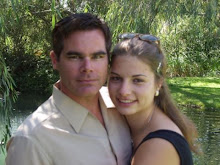After I left a meeting one day an individual came up to me and asked me to help him by being his sponsor. I said, OK. I then asked him to go to a meeting the next day and call me afterwards. This is an edited version of what he wrote back a week later. .
Got your messages after 9:30 last night. Don't know if you are a church guy,
but Easter this Sunday and the busiest week for our church community in terms of preparation. Lots of people out sick, so filling in and jumping in at the last minute. Had a group set up last tight til 7:30 which turned out being to almost 9:30.
Doing well. Drinking in every word at the meeting and integrating it into the way I think now. Been good at filling in my evenings so that drinking isn't an option.
Appreciate your support and looking forward to meeting with you. would like to know your ideas about things, share mine with you, and hang out with the 1st step and really get it.
I have the calendar and if and when I can do more than one a day, I'll check in, but so far so good with one, which is way more than I have ever done. I have an obsessive and addictive mind and want to stay balanced and not just trade AA for alcohol.
Hopefully we can connect next week when things slow down for the both of us.
Denial is not a river in Egypt.
Denial is the psychological process by which human beings protect themselves from things which threaten them by blocking knowledge of those things from their awareness. It is a defense which distorts reality; it keeps us from feeling the pain and uncomfortable truth about things we do not want to face. If we cannot feel or see the consequences of our actions, then everything is fine and we can continue to live without making any changes.
MINIMIZING: Minimizing is admitting the problem to some degree but in such a way that it appears to be much less serious or significant than it actually is. "I wasn't that bad of a drunk," "Yes, I am a drunk, but not the kind that needs constant direction to get better," "I had a couple of bad incidents but I know what's best for me now," "I only drank once a day, not at night so it's not that important to go to a lot of night meetings" are frequently heard examples of minimizing. RATIONALIZING: Rationalizing is making excuses or giving reasons to justify your behavior. Examples: "I only need this one meeting, so I 'll do it my way." "I had a hard day and was fine with one meeting," "I usually don't go out after dark - I'll do it my way because I'm different!" are some of the examples of rationalizing. The rationalizing behavior is not denied but an inaccurate explanation of its cause is given. INTELLECTUALIZING or GENERALIZING: Intellectualizing is avoiding emotional, personal awareness of an alcohol-related problem by using theories about your chemical dependency, keeping it general and vague. "Are those meetings really helping? Just the other day I was reading about problems with some people who trade alcohol for AA." "Lots of people go to one meeting, are they brainwashed?" "My plan is the only thing I need and your request does not make sense to me." "My problem was not so bad, my drinking was simply a way of coping with my underlying feelings." These all are examples of intellectualizing.
BH:
Next week I'll write about Gut Level Honesty.
